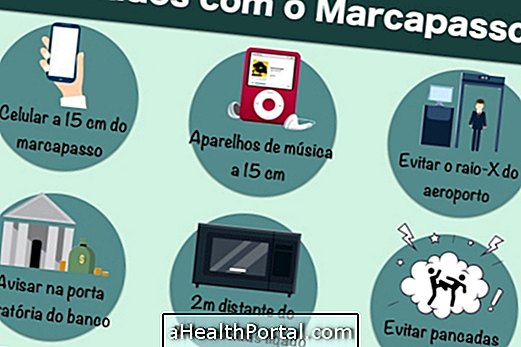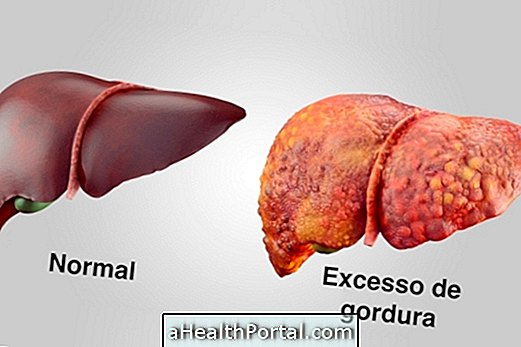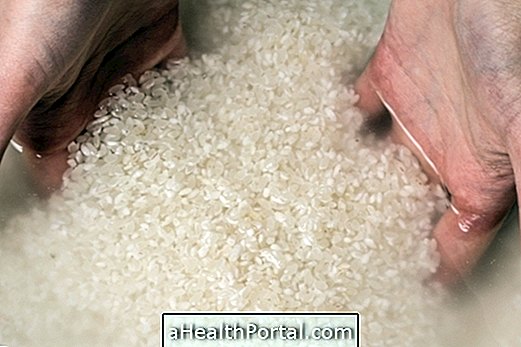The vaccines recommended in the immunization schedule of the elderly include those against influenza, pneumococcal pneumonia, tetanus, diphtheria, hepatitis, yellow fever, triple viral, shingles and meningococcal meningitis, many of them being made available by the Ministry of Health for free through SUS, while some can only be acquired in private clinics, such as the herpes zoster, meningococcus and hepatitis A, for example.
Vaccination of the elderly is very important to provide the necessary immunity to combat and prevent infections, so it is essential to improve the quality of life and increase the life expectancy of people 60 years of age or older.
In addition, attention should be paid to the particularities of the vaccines, since they should be indicated by the physician, after evaluation of the previous vaccinations, health status and immunity of the person receiving the dose. One example is vaccination against yellow fever, which should not be done for all the elderly, due to the risk of side effects in some cases.

The immunization schedule of the elderly follows the recommendations of the Brazilian Immunization Society in conjunction with the Brazilian Society of Geriatrics and Gerontology, and includes:
1. Flu vaccine
Influenza is the respiratory infection caused by the influenza virus and therefore prevents not only influenza but also pneumonia, hospitalization and the risk of death caused by these microorganisms.
These vaccines are made up of inactivated and fragmented viruses, therefore, without risk of causing infection in the person. However, since 3 or 4 of the most circulating and dangerous viruses of the period are selected for the production of the vaccine, people may become infected with other types of influenza or with viruses that cause colds, which confuses many people.
- When it should be taken: 1 time per year, preferably before the start of fall, when viruses start to circulate more frequently and the chances of infection increase.
- When it is contraindicated : people with a history of anaphylactic reaction or severe allergy to the chicken egg and its derivatives, or to any other component of the vaccine. The vaccine should be postponed in patients with moderate to severe febrile infection or changes in blood coagulation if done intramuscularly.
The flu vaccine is offered free of charge by SUS, at health clinics, in annual campaigns.
2. Pneumococcal vaccine
This vaccine prevents infections caused by the bacterium Streptococcus pneumoniae, especially pneumonia, as well as other serious diseases such as meningitis or bacteremia, which is a widespread infection of the body.
There are 2 types of vaccines available for the elderly, which are 23-valent Polysaccharide (VPP23), which contains 23 types of pneumococci, and 13-valent Conjugate (VPC13), which contains 13 types.
- How it should be taken: A three-dose regimen is usually done, starting with VPC13, followed after six to twelve months by VPP23, and another VPP23 boosting dose after 5 years. If the elderly have received a first dose of VPP23, VPC13 should be given after 1 year and the VPP23 booster dose should be scheduled after 5 years of the first dose.
- When it is contraindicated : only in cases of anaphylactic reaction to the previous dose of the vaccine or any of its components. Delay in case of acute febrile illness or changes in blood coagulation if done intramuscularly.
This vaccine is made free of charge by SUS for the elderly with a higher risk of infection, such as the institutionalized who live in community restrooms, and the others can be vaccinated in private clinics.

3. Vaccine against yellow fever
This vaccine protects against yellow fever infection, a dangerous viral infection transmitted by mosquitoes. However, its application should be safeguarded for necessary cases, avoiding the fragile elderly and people with compromised immunity.
This is because the vaccine is made from live attenuated virus samples and there is the rare risk of developing a severe reaction, similar to that of yellow fever, called "virus visceralization."
Thus, for the elderly, the vaccine against yellow fever can be indicated in the following cases: inhabitants of endemic areas, people traveling to endemic areas or whenever there is an international requirement, in an area considered without risk. In all cases, you should talk to the elderly about the risks and benefits of this vaccine, which should only be applied after your consent.
- When it should be taken: The health ministry currently recommends only 1 whole dose from 9 months of age, however, those who have never taken the vaccine should take the dose if they reside or travel to a region at risk, which include rural areas in the North and Midwest of the country and some municipalities in the States of Maranhão, Piauí, Bahia, Minas Gerais, São Paulo, Paraná, Santa Catarina and Rio Grande do Sul.
- When it is contraindicated : history of anaphylactic reaction after ingestion of chicken egg or components of the vaccine, diseases that reduce immunity such as cancer, diabetes, AIDS or use of immunosuppressive, chemotherapeutic or radiotherapeutic drugs, and in cases of acute febrile illness.
It is possible to be vaccinated against yellow fever at SUS health clinics for free.
4. Meningococcal vaccine
This vaccine provides protection against the bacteria Neisseria meningitidis, known as Meningococcus, which is able to spread through the bloodstream and cause serious infections, such as meningitis and meningococcemia.
As there are not many scientific studies done with this vaccine in the elderly, it is usually recommended in some cases of greater risk, such as in epidemic situations of the disease or travel to areas at risk.
- How it should be taken: single dose in cases of epidemics.
- When it is contraindicated : people with allergy to any component of the vaccine. Delay in case of acute febrile illness or diseases that cause coagulation disorders.
The meningococcal vaccine is available only in private immunization clinics.
5. Herpes zoster vaccine
Shingles is a disease caused by the reactivation of varicella virus, which can remain lodged in the nerves of the body for several years, and causes bullous, reddish and very painful lesions. This infection is more common in the elderly and in people with weakened immunity, and because it can be very uncomfortable and leave painful sequelae in the skin that can last up to years, many seniors have opted for prevention.
- How it should be taken : single dose, for all people over the age of 60 years. For people who have already had shingles, it is necessary to wait for the minimum interval of six months to 1 year for the application of the vaccine.
- When it is contraindicated : people with allergies to the components of the vaccine, or those with immunity compromised by diseases or use of medicines, such as AIDS patients, cancer, using systemic corticosteroids or chemotherapeutics, for example.
The vaccine against shingles can be applied in private vaccination clinics. Learn more about what is and how to treat shingles.

6. Tetanus and diphtheria vaccine
The double viral vaccine, or dT, provides protection against tetanus infections, which is a serious infectious disease that can lead to death, and diphtheria, a very contagious infectious disease.
- When it should be taken: every 10 years, as a booster for people who have been correctly vaccinated in childhood. For elderly who have not been vaccinated or who have no record of the vaccine, it is necessary to make the 3-dose schedule with an interval of 2 months between each and then do the booster every 10 years.
- When it is contraindicated : in case of anaphylactic reaction prior to the vaccine or any of its components. Delay in cases of blood clotting disorders if done intramuscularly.
The dT is available free of charge at health clinics, however, there is also the adult bacterial triple vaccine, or dTpa, which in addition to tetanus and diphtheria protects against pertussis, in addition to the tetanus vaccine separately, which are available at private clinics in immunization.
7. Viral triple vaccine
The vaccine against measles, mumps and rubella virus is needed in cases of increased risk of infection, such as outbreak situations, trips to risky places, people who have never been infected or who have not received the 2 doses of the vaccine throughout the life.
- How it should be taken : only 2 doses are needed throughout life, with a minimum interval of 1 month.
- When it is contraindicated : people with immunity severely compromised or who have had anaphylactic reaction after eating egg.
It is not available for free for the elderly, except during campaign periods, and it is necessary to go to a private immunization clinic.
8. Hepatitis Vaccine
Protection against hepatitis A and hepatitis B can be acquired through separate or combined vaccines for people who do not have immunity against these diseases who have never been vaccinated or who have no vaccine records.
- How it should be taken : Vaccination against hepatitis B, or combined A and B, is done in 3 doses, in the 0 - 1 - 6 months schedule. The isolated hepatitis A vaccine may be taken after a serological evaluation indicating lack of immunity against this infection or in situations of exposure or outbreaks, in a two-dose schedule, with a 6-month interval.
- When it is contraindicated : people with anaphylactic reaction to the components of the vaccine. It should be delayed in cases of acute febrile illness or coagulation disorders if intramuscular use.
The hepatitis B vaccine can be made free of charge by the SUS, however, vaccination against hepatitis A is only available at private immunization clinics.























